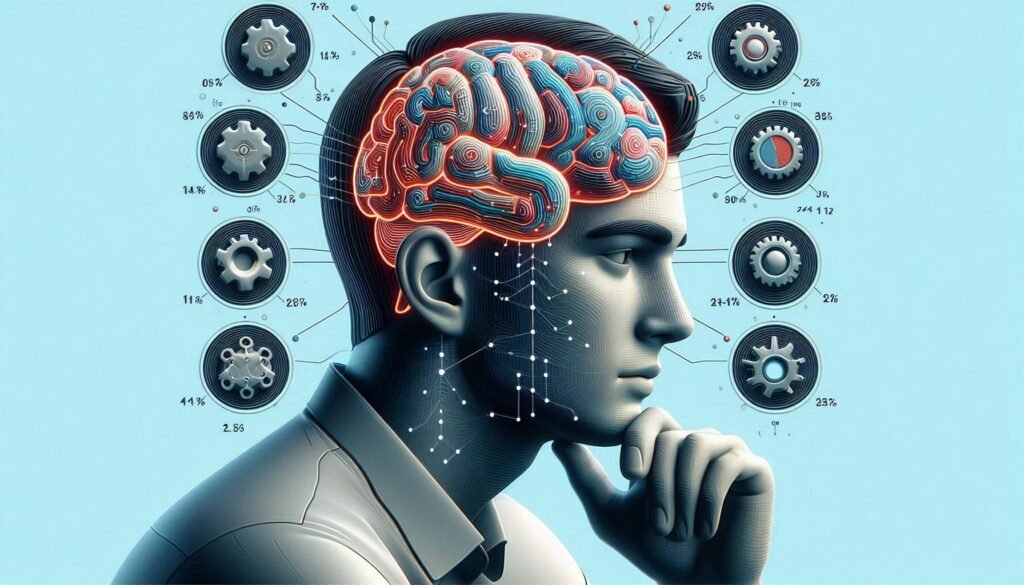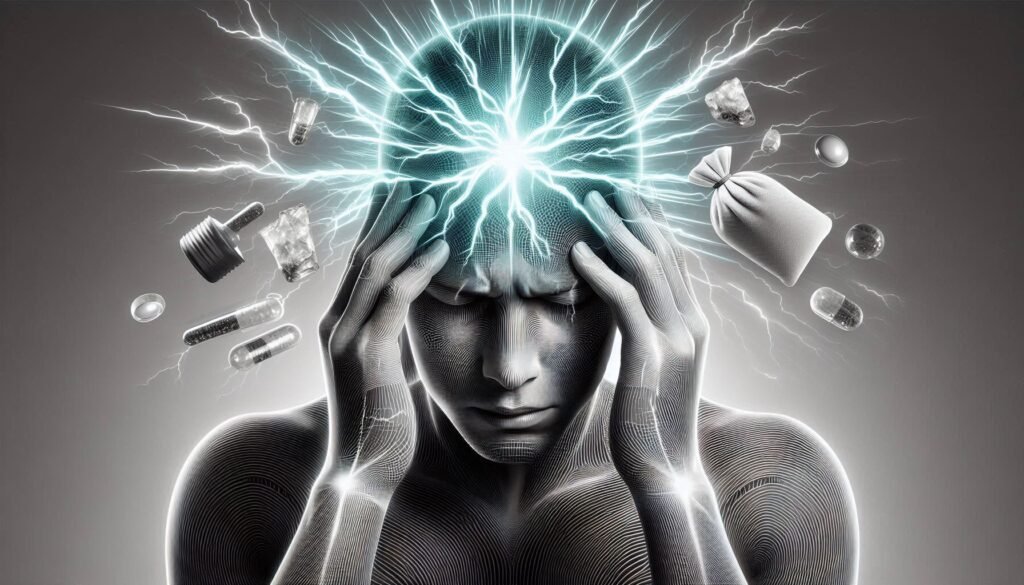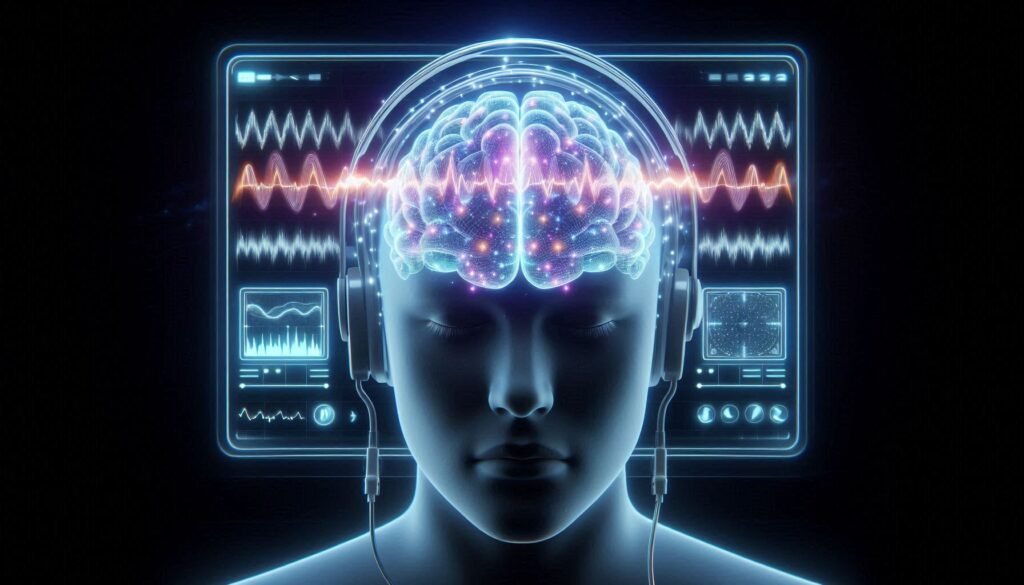Concussions are more than just bumps on the head. They can lead to a variety of cognitive deficits that significantly impact daily life. From memory lapses to difficulties with focus and decision-making, the road to recovery requires targeted intervention. Cognitive rehabilitation techniques for concussion patients play a vital role in restoring mental clarity and improving overall function.
Understanding these techniques is essential for anyone navigating post-concussion recovery. Whether you’re a patient seeking solutions or a caregiver looking to support a loved one, this guide will provide valuable insights into effective strategies for cognitive rehabilitation. Let’s explore how tailored exercises and innovative approaches can help bring back cognitive resilience after an injury like no other.

Understanding Cognitive Deficits Following a Concussion
Cognitive deficits following a concussion can manifest in various ways, affecting everyday functioning. Patients often experience challenges with attention, memory, and executive functions. These cognitive impairments can make it difficult to concentrate on tasks or remember important information.
The brain experiences chemical and structural changes after an injury, leading to temporary disruptions in cognitive abilities. Symptoms may vary widely from person to person; some might struggle with processing speed while others face difficulties in problem-solving or decision-making.
Additionally, emotional regulation can be impacted. Anxiety and irritability are common companions of cognitive deficits post-concussion. This emotional turmoil further complicates recovery efforts as patients navigate both mental and emotional hurdles.
Understanding these effects is crucial for developing effective rehabilitation strategies tailored to individual needs. By recognizing the specific areas of difficulty, appropriate interventions can be implemented to facilitate healing and improve overall quality of life during recovery.
Neuropsychological Assessment: The First Step in Cognitive Rehabilitation
Neuropsychological assessment is a crucial initial step for concussion patients embarking on cognitive rehabilitation. This comprehensive evaluation provides insights into the specific cognitive deficits caused by the injury. It assesses various domains, including memory, attention, language, and executive functions.
During the assessment process, a neuropsychologist will administer standardized tests tailored to identify areas of impairment. These tests help map out an individual’s strengths and weaknesses post-concussion. Understanding these patterns enables more effective treatment planning.
Moreover, this assessment serves as a baseline to monitor progress over time. By documenting initial capabilities and challenges, healthcare providers can adjust rehabilitation techniques accordingly. Regular reassessment helps track improvements or any emerging issues.
Neuropsychological assessments lay the foundation for personalized interventions in cognitive rehabilitation programs. They ensure that each patient’s unique needs are addressed throughout their recovery journey while promoting optimal brain health.
Attention Training Exercises for Improved Focus and Concentration
Attention training exercises are essential for enhancing focus and concentration in concussion patients. These exercises can help retrain the brain to maintain attention on specific tasks, which may be challenging after a head injury. Simple games like puzzles or memory cards encourage sustained mental engagement, making them effective tools for rehabilitation.
Mindfulness practices also play a crucial role in boosting attentional control. Techniques such as deep breathing and meditation foster awareness of present moments, allowing individuals to redirect their scattered thoughts back to the task at hand. This not only improves cognitive function but also promotes emotional wellbeing.
Another popular exercise involves timed activities that require focused effort, such as reading passages with interruptions or completing math problems within set time limits. Such challenges enhance the ability to concentrate amidst distractions.
Incorporating structured routines into daily life can further support attention training efforts. Setting specific times for work and breaks helps establish predictability, enabling patients to gradually build their capacity for sustained focus over time.
Memory Enhancement Strategies for Post-Concussion Patients
Memory enhancement is crucial for post-concussion patients experiencing cognitive deficits. Simple strategies can significantly aid recovery. One effective method involves the use of visual aids, such as charts or diagrams, to reinforce information retention. These tools help create mental images that make recalling facts much easier.
Repetition plays a vital role in memory improvement. Encourage patients to review key concepts multiple times throughout the day. This practice strengthens neural connections and enhances long-term recall. Additionally, breaking down complex information into smaller chunks allows for more manageable learning sessions.
Mnemonics are another powerful technique for boosting memory retention. Creating acronyms or rhymes can simplify difficult information, making it easier to remember during stressful situations. Associating new ideas with familiar ones also facilitates smoother recollection.
Maintaining an organized environment contributes to better focus and memory performance. A clutter-free space minimizes distractions and helps individuals concentrate on their tasks effectively.
Executive Function Training: Improving Planning and Decision-Making
Executive functions are essential cognitive processes that enable us to plan, prioritize, and make decisions. For concussion patients, these abilities can be significantly impaired. This impact may affect daily life, including work and personal responsibilities. Thus, targeted training is crucial in the recovery process.
Engaging in structured activities can help improve executive functioning skills. Techniques such as setting specific goals or breaking tasks into smaller steps allow patients to practice planning effectively. Using checklists and visual schedules also provides tangible support for managing everyday tasks.
Role-playing scenarios can enhance decision-making skills by allowing individuals to navigate different situations safely. These exercises promote critical thinking and adaptability when faced with unexpected challenges.
Regular feedback plays an integral role in this training approach. By discussing successes and areas for improvement with therapists or caregivers, patients develop insights into their progress, fostering a sense of accomplishment while refining their executive function capabilities over time.
Cognitive-Linguistic Exercises for Language Processing Issues
Cognitive-linguistic exercises are essential for concussion patients experiencing language processing issues. These exercises focus on strengthening the connection between cognitive functions and language abilities, which can often be compromised after a head injury.
Activities may include word retrieval tasks, where patients practice recalling words associated with specific categories or themes. This helps enhance vocabulary and improves spontaneous speech during conversations. Simple games like crossword puzzles or word searches can also stimulate linguistic skills while making therapy enjoyable.
Additionally, sentence construction activities can aid in improving syntax and grammar usage. Patients might work on rearranging jumbled sentences to foster clarity in communication. Listening comprehension tasks that involve summarizing spoken information further reinforce auditory processing capabilities.
Incorporating storytelling into cognitive-linguistic exercises allows individuals to express their thoughts creatively while practicing sequencing events logically. This not only builds confidence but also encourages social interaction through shared narratives among peers or family members during rehabilitation sessions.
The Role of Technology in Cognitive Rehabilitation Programs
Technology plays a significant role in cognitive rehabilitation for concussion patients. It offers innovative solutions that enhance traditional therapeutic methods. Digital tools provide personalized treatment plans tailored to individual needs, making recovery more effective.
Various apps and software programs are designed specifically for cognitive training. These applications focus on improving attention, memory, and executive functioning through engaging exercises. Patients can practice at their own pace, allowing them to take charge of their recovery process.
Virtual reality (VR) is another exciting advancement in this field. VR environments create immersive experiences that challenge cognitive skills while reducing distractions from the real world. This method can simulate everyday scenarios to help patients adapt better after a concussion.
Teletherapy has also become increasingly popular among rehabilitation specialists. It allows patients to access professional guidance from the comfort of their homes, ensuring consistent support throughout the recovery journey. Technology not only streamlines communication but also enhances motivation by making exercises more enjoyable and interactive.
Integrating Daily Activities into Cognitive Rehabilitation
Integrating daily activities into cognitive rehabilitation can significantly enhance recovery for concussion patients. Engaging in routine tasks allows individuals to practice cognitive skills in real-life contexts, making the process more relatable and effective. This approach also helps patients regain confidence as they rediscover their abilities.
Simple activities like cooking, shopping, or even managing appointments can serve as valuable opportunities for cognitive training. For instance, following a recipe involves memory recall, sequencing, and attention to detail—all essential skills affected by a concussion. These practical exercises provide immediate feedback on performance.
It’s important to adapt these daily tasks according to each patient’s unique needs and capabilities. Start with manageable goals that gradually increase in complexity as improvement occurs. Tailoring activities ensures that patients remain challenged yet not overwhelmed during their rehabilitation journey.
Involving family members or caregivers further enriches this experience. Supportive interaction encourages social engagement while providing additional motivation and accountability throughout the recovery process.
Measuring Progress: Tracking Cognitive Improvements Over Time
Measuring progress in cognitive rehabilitation is essential for concussion patients. Tracking improvements over time helps clinicians tailor interventions effectively. Regular assessments can identify which strategies are working and which need adjustments.
Various tools exist to measure cognitive function, including standardized tests and questionnaires. These assessments evaluate attention, memory, executive functions, and language skills. By comparing results at different intervals, practitioners can gauge recovery more accurately.
Patient self-reports also play a crucial role in tracking progress. Encouraging individuals to reflect on their daily experiences aids in understanding how symptoms manifest in real life. This feedback provides valuable insights that complement clinical evaluations.
Technology has enhanced the ability to monitor cognitive changes as well. Cognitive training apps often include built-in assessment features that track user performance over time. This data creates a clearer picture of improvement while keeping patients engaged with their rehabilitation journey.
Long-Term Cognitive Management Strategies for Concussion Patients
Long-term cognitive management is essential for concussion patients aiming to regain their quality of life. Developing sustainable strategies can greatly enhance recovery outcomes. This involves creating a personalized rehabilitation plan that includes regular assessments and adjustments based on progress.
Maintaining a routine plays a critical role in cognitive health. Establishing consistent sleep patterns, balanced nutrition, and regular exercise can help support brain function over time. Cognitive exercises should remain a part of daily life; incorporating games or puzzles stimulates the mind while making rehabilitation enjoyable.
Support networks are vital as well. Engaging with family or joining support groups fosters an environment conducive to emotional healing and shared experiences among individuals facing similar challenges. These connections provide encouragement and motivation throughout the journey.
Regular check-ins with healthcare professionals will ensure that any emerging issues are promptly addressed. They can guide patients on how to adapt activities or introduce new techniques as necessary.
By proactively managing their cognitive health, concussion patients can improve their resilience against future challenges, fostering long-lasting benefits from their rehabilitation efforts.


